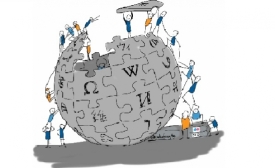digital diplomacy
The UK's Ambassador to the UN is using Twitter to crowdsource ideas for how the the UK could contribute to improving the UN Security Council during its presidency. More information on the Canadian Foreign Ministry's $9.5 million digital diplomacy project in Iran that opens up the internet in countries ruled by repressive regimes by circumventing government firewalls.

Ali Fisher, Barbora Maronkova, and Emily Metzgar selected as newest CPD Research Fellows.
Delivering reliable Internet access to a country that has more than 17,000 islands, which are scattered across a vast area of the Indian and Pacific Ocean, is a challenge. Luckily for folks in Indonesia, Google is ready to take on that challenge with its Project Loon, which brings Internet access to remote areas via a network of high-altitude balloons.
More than a million Mexicans subscribe to internet comedy star Chumel Torres' YouTube channel, El Pulso de la Republica, the country's most successful independent satirical show. Twice a week, Torres, 33, uses the ample supply of public corruption, embarrassing mismanagement and other hot-button issues that plague Mexico to script his show, delivered mainly straight to the camera with an array of props [...]

Caitlin Byrne, an assistant professor of international relations and a former CPD Research Fellow (2010-2012), and Jane Johnston, an associate professor of media and communication, both at Bond University in Australia, have published a new article.
Since 2004, Games for Change, a nonprofit group, has designed and promoted games that inspire players not to zap space aliens but instead to change the world for the better. In the first game released by the group, called PeaceMaker, gamers were invited to broker peace between the Israelis and the Palestinians.
2015 has already seen several Chinese propaganda videos, from foreign students falling in love with President Xi Jinping to Britain and China being “closer thank you think”; but this video is the most bizarre (until the next). The state news agency, Xinhua, tweeted the video above with the caption: “Wanna know what China’s gonna do? Best pay attention to the 十三五! See why it matters”.
Around the world people are celebrating the UN's 70th anniversary. Take a look at this selection of some of the celebrations taking place the world. Keep sharing your #UN70 moments […]







